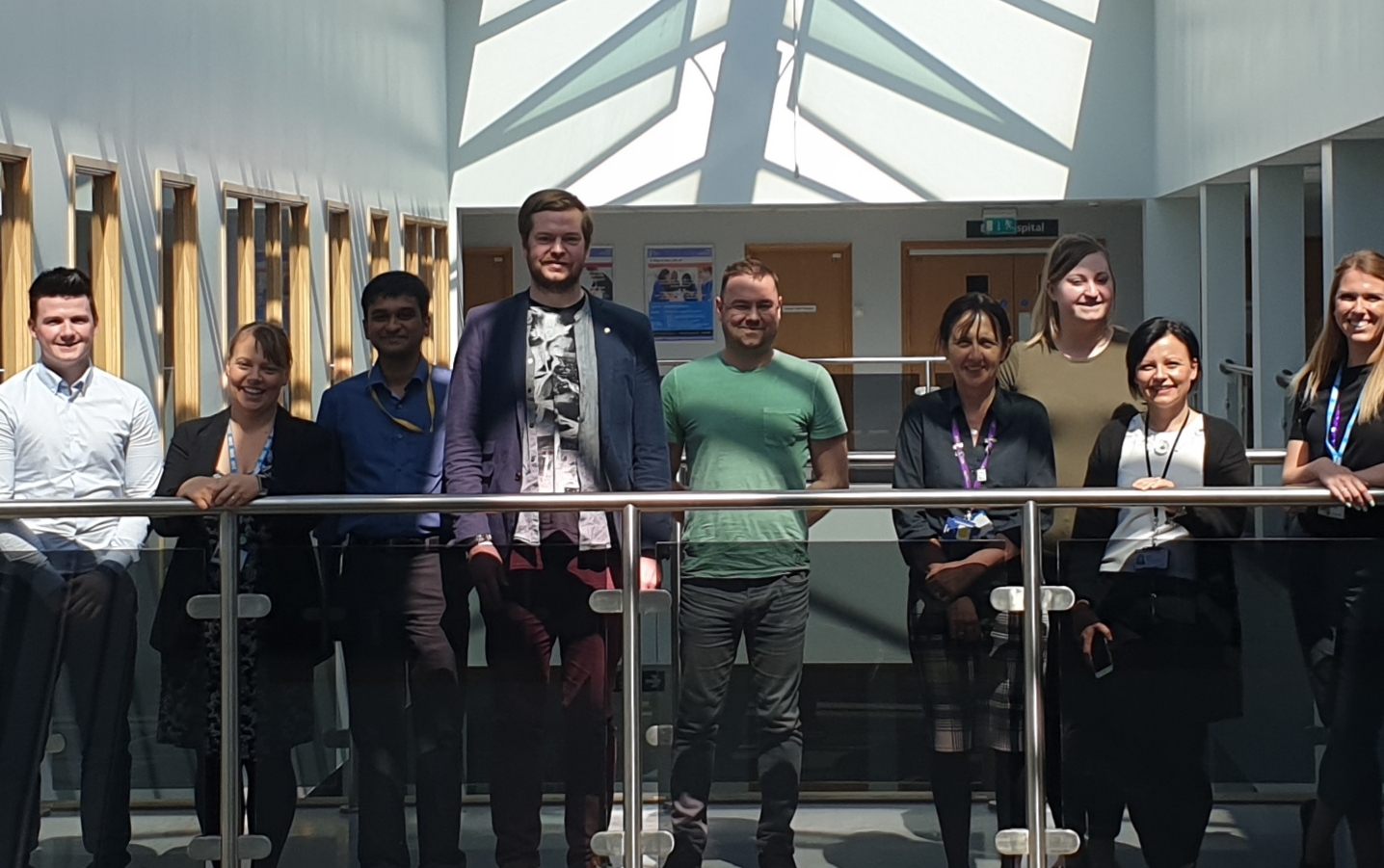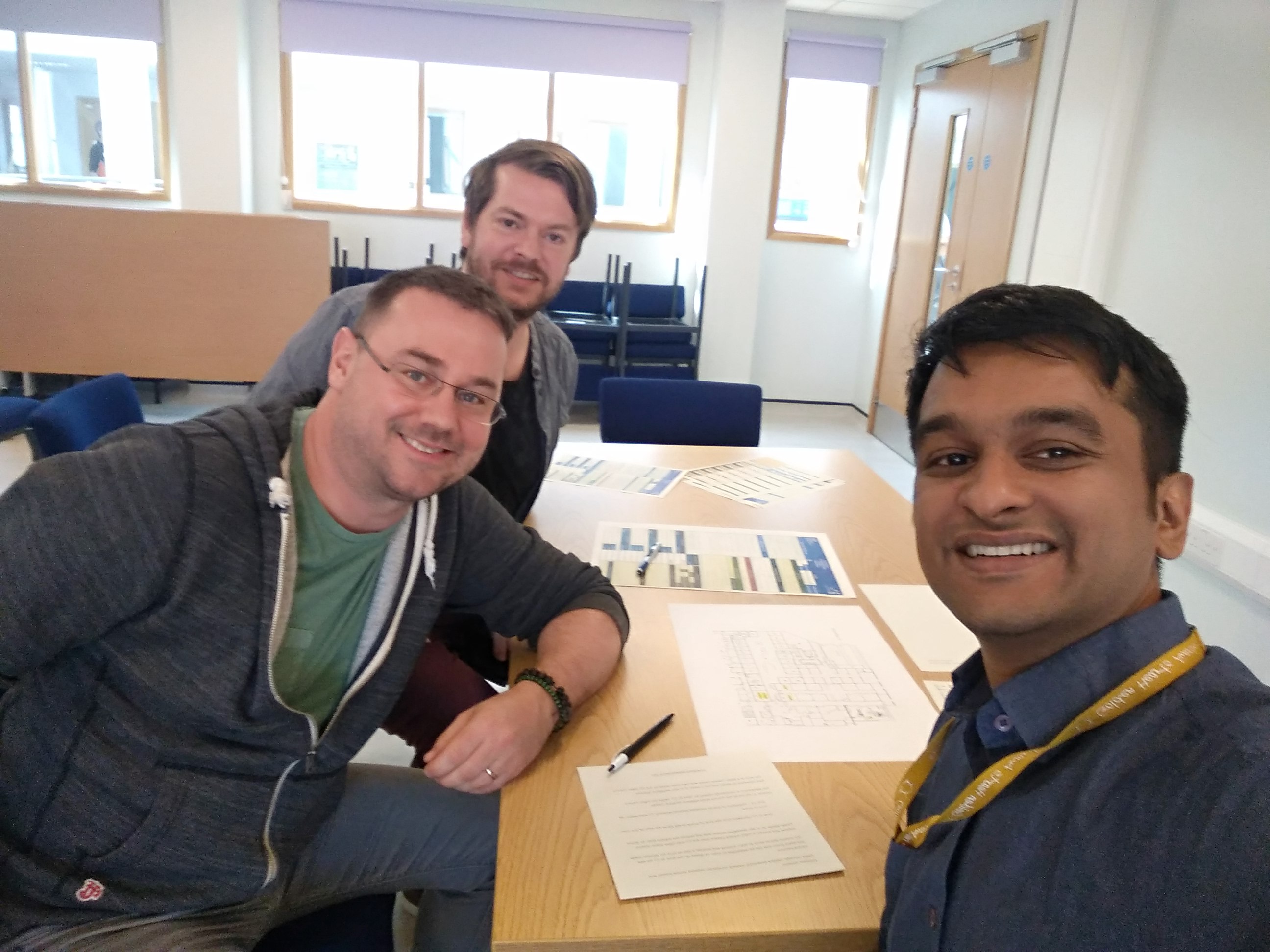A world-class training facility in Hull which prepares NHS staff for medical emergencies is achieving recognition on a global stage as it plays host to two international teams.
Hull Institute of Learning and Simulation (HILS) has designed an ‘operating theatre’ and four-bedded ward to mirror the exact conditions staff will face when working in emergency medicine and critical care or performing keyhole surgery.
Workshops train health professionals in skills using hi-tech equipment including mannekins which respond to ‘pain’ and surgical equipment to practice surgery.
Hull University Teaching Hospitals NHS Trust uses the centre in Fountain Street, next to Hull Royal Infirmary, so staff can learn in a protected environment with “permission to fail” so they are able to cope in real life when a patient’s life hangs in the balance.

Members of the Landspitali simulation team Thorstein and Baldur
Now, the centre is showcasing its facilities and ground-breaking work to visitors from Iceland and India.
Chief Medical Officer Dr Makani Purva said: “Hull has an outstanding simulation facility and our work is now attracting global attention.
“We are striving constantly to find new ways of using simulation in learning and our determination to use the latest technological advances can only benefit the people of Hull who come to us for their care.
“These visits show we are establishing a global reputation as a leader in this exciting field of medical education.”
Members of the Landspitali simulation team Thorstein and Baldur , based in Iceland, visited HILS last month to discover how the centre uses simulation to improve health care ahead of setting up their own centre later this year.
During their three-day visit, they learned about the training programme, the role of the simulation technicians and other activities the service offers as part of a long-term partnership set up between the two organisations.

Dr Sree Kumar
Dr Sree Kumar, an oversees fellow from India, is also spending eight weeks with the team to learn how to set up a run a successful simulation centre back at Sri Ramachandra University in Chennai on the Bay of Bengal in eastern India.
Dr Kumar has been observing simulation, running in situ simulations in diabetes and also visited Defence Medical Services at Whittington Barracks in Lichfield with the HILS team to see how the military run their simulations.
The trust has signed a Memorandum of Understanding with the university to take forward the simulation agenda and hopes to establish joint research projects and exchange programmes in the future.

